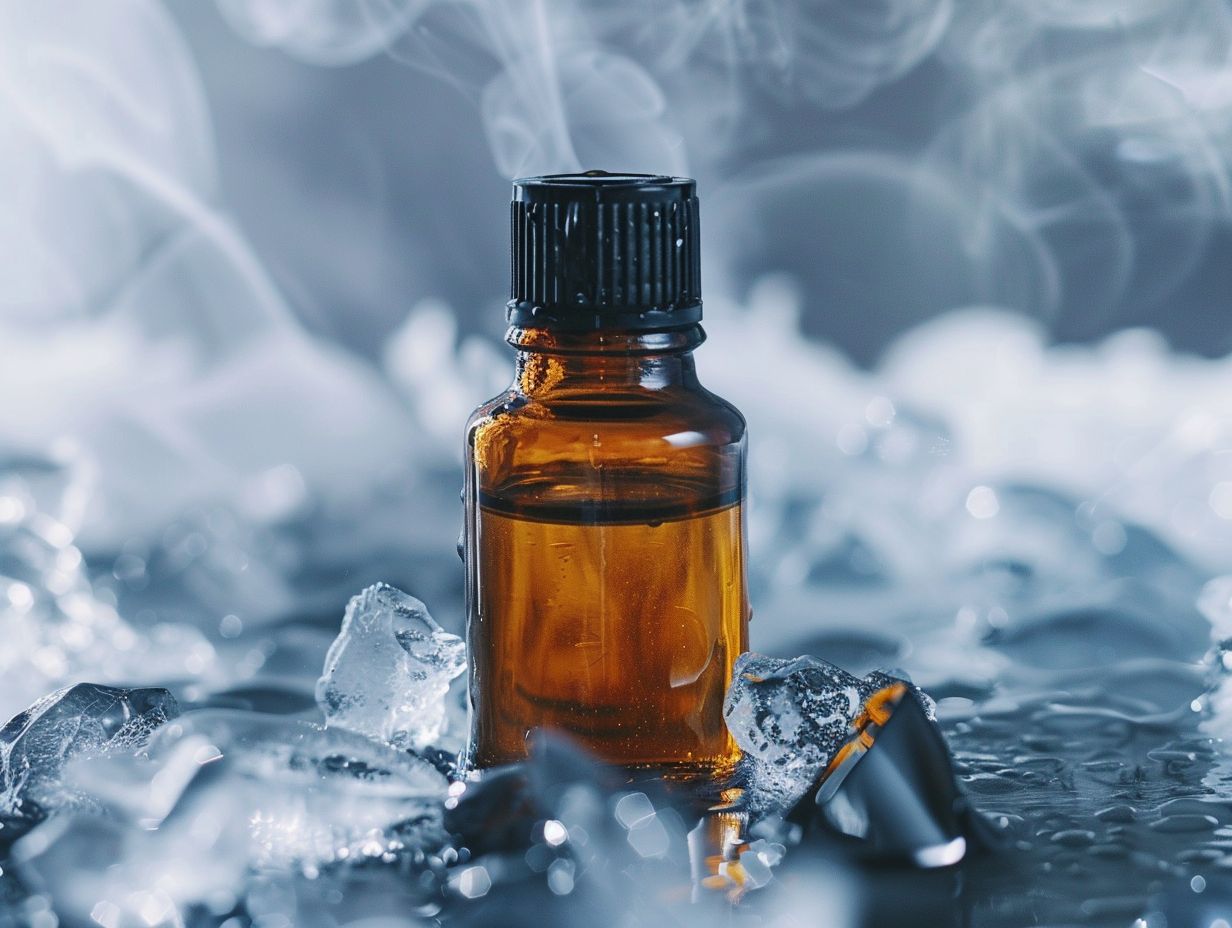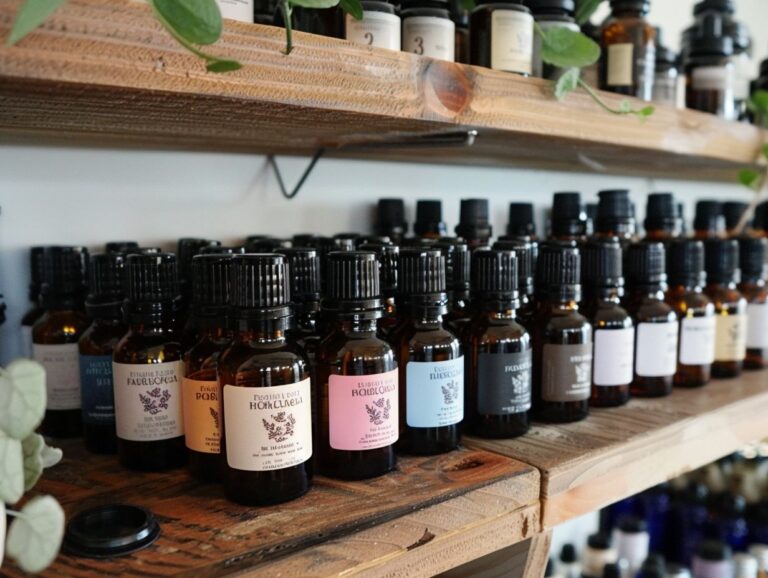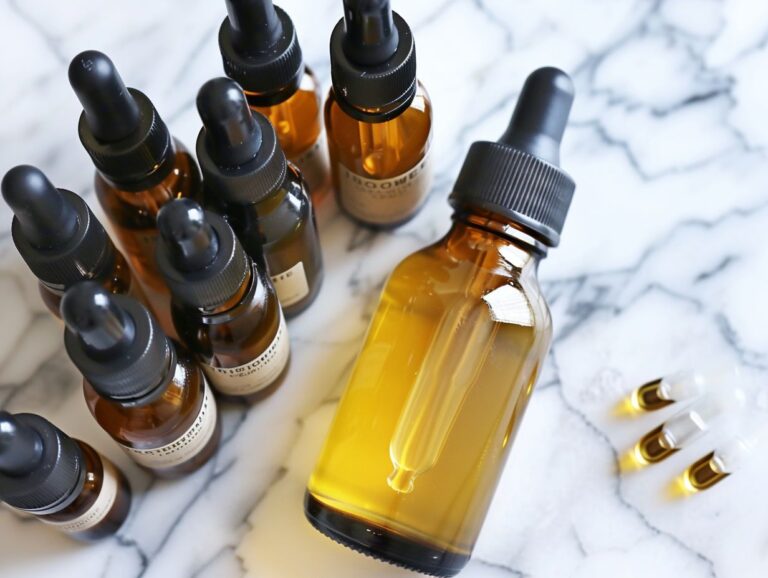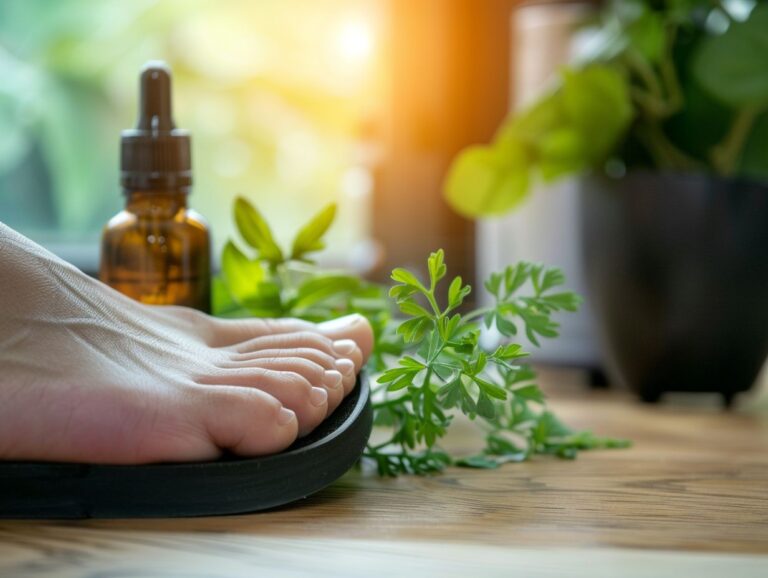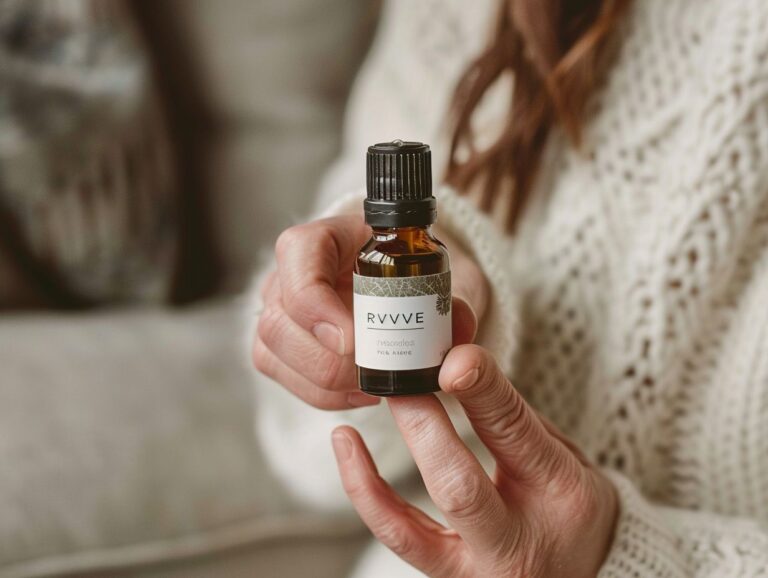Can Essential Oils Freeze
Essential oils have become a popular choice for natural remedies and aromatherapy, but have you ever wondered if they can freeze?
In this article, we will explore the storage of essential oils and their freezing point. We will discuss what factors can affect the freezing point of essential oils, what happens when they freeze, and how to prevent it.
Discover the risks of using frozen essential oils, any benefits of freezing them, and how to thaw them if they do freeze. Join us as we delve into the world of essential oils and their storage concerns.
Key Takeaways:
What Are Essential Oils?
Essential oils are highly concentrated plant extracts that retain the natural aroma and chemical properties of the plant they are derived from. These oils are known for their distinct fragrances and diverse chemical compositions.
Extraction methods for essential oils vary depending on the plant source. Common methods include steam distillation, cold pressing, and solvent extraction. Each method preserves different components of the plant, leading to varying oil characteristics.
Chemical constituents in essential oils, such as terpenes, esters, alcohols, and phenols, contribute to their therapeutic properties. These oils offer a wide range of benefits, including aromatherapy, skin care, relaxation, and even natural cleaning solutions.
How Are Essential Oils Stored?
Proper storage of essential oils is essential to preserve their quality and effectiveness. Essential oils should be stored in dark glass bottles to protect them from sunlight and heat.
Light and heat can degrade the potency and aromatic properties of essential oils, making them less effective for their intended purposes. Dark glass bottles, such as amber or cobalt blue, are preferred by many Young Living members and essential oil enthusiasts for their ability to block out harmful UV rays and maintain the oils’ integrity over time.
What Is the Freezing Point of Essential Oils?
The freezing point of essential oils varies depending on the specific oil and its chemical composition. It is crucial to understand the freezing points to ensure proper storage and usage.
Temperature plays a significant role in the properties of essential oils; lower temperatures can cause oils to solidify, altering their texture and viscosity. This can impact the aroma and therapeutic benefits of the oil when used. Freezing points are also closely linked to the oxidation process of essential oils. If oils are exposed to temperatures below their freezing points, it may accelerate oxidation, leading to a loss of potency and aroma. It’s essential to store essential oils properly in a cool, dark place to maintain their integrity and effectiveness.
What Factors Can Affect the Freezing Point of Essential Oils?
Several factors can influence the freezing point of essential oils, including their specific chemical composition, the temperature at which they are stored, and the presence of certain compounds that affect their solidification.
One of the key factors affecting the freezing point of essential oils is their chemical composition. Each essential oil has a unique blend of compounds, such as terpenes, alcohols, and esters, which contribute to its freezing characteristics. Temperature plays a crucial role too; lower temperatures typically result in a higher freezing point. The process of oxidation can alter the freezing point of essential oils, as exposure to oxygen can lead to chemical changes that impact their ability to solidify. Understanding these factors is vital for storing and using essential oils effectively.
Can Essential Oils Freeze?
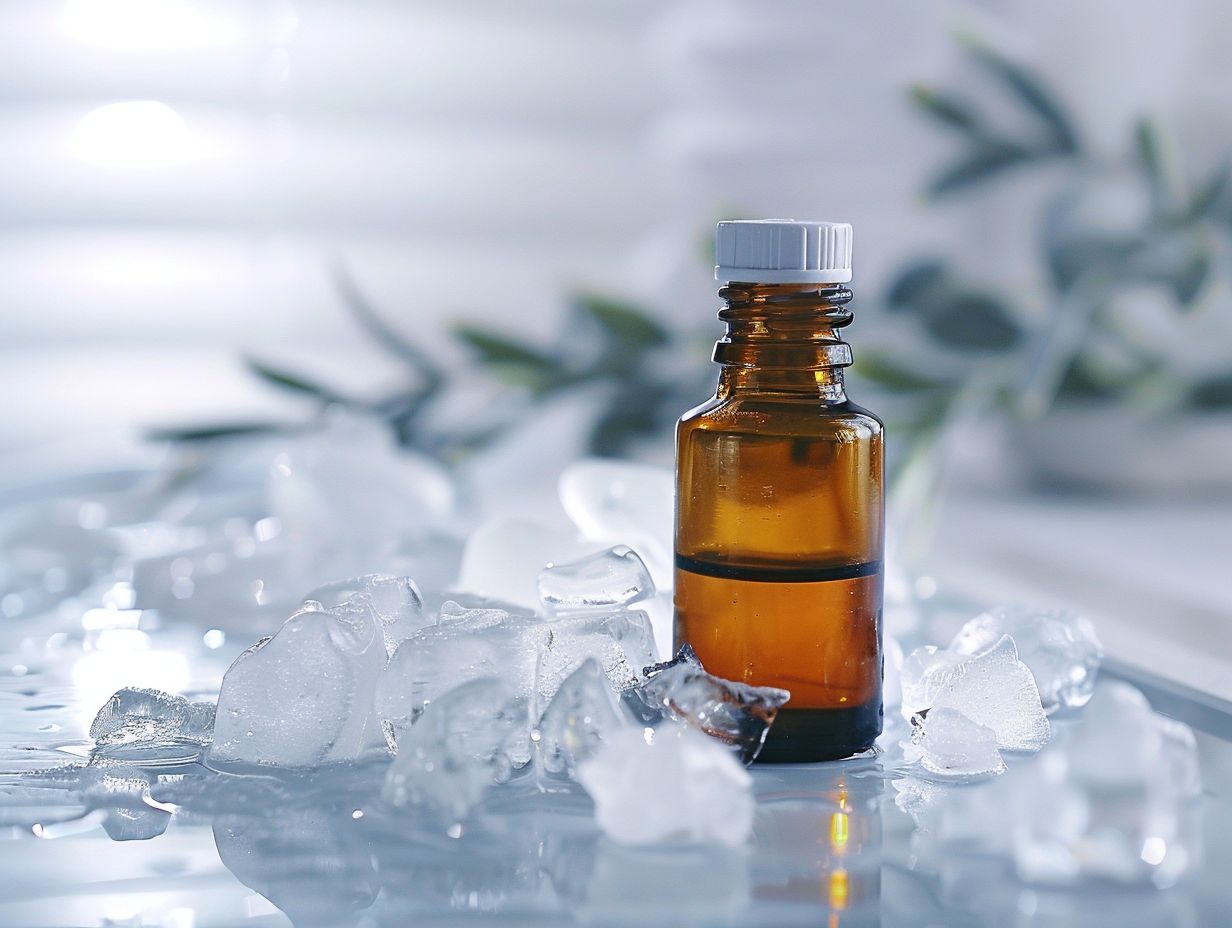
Essential oils can indeed freeze under specific temperature conditions. It is important to be aware of this property when storing oils in colder environments.
When exposed to low temperatures, essential oils tend to solidify and form crystals, which can alter their texture and appearance. The freezing behavior of essential oils varies depending on the specific composition of each oil. For instance, oils with a higher content of heavier components like waxes and esters are more likely to solidify at relatively warmer temperatures. This solidification process can impact the overall quality and efficacy of the oil.
What Happens When Essential Oils Freeze?
When essential oils freeze, their composition may undergo changes due to solidification. This can affect the aroma, consistency, and overall quality of the oil.
Freezing can cause the molecules in the oil to align in a new way, potentially altering the oil’s properties. For example, the texture of the oil may become grainy or cloudy after freezing and then thawing. The freezing process could impact the chemical composition of the oil, leading to a change in its therapeutic properties. The risk of oxidation increases when essential oils are subjected to freezing temperatures, potentially diminishing their beneficial effects. Therefore, proper storage is crucial to maintain the integrity of essential oils.
How to Prevent Essential Oils from Freezing?
To prevent essential oils from freezing, it is crucial to store them in a suitable environment that maintains a consistent temperature above their freezing point.
When essential oils are exposed to freezing temperatures, their chemical composition can be altered, leading to potential degradation and loss of potency. Proper storage is key to safeguarding the quality and efficacy of these precious oils. Storing them in a cool, dark place away from direct sunlight and extreme temperature fluctuations is essential.
Consider using dark glass bottles to shield the oils from light exposure, which can accelerate oxidation. Ensure that the lids are tightly sealed to prevent air from entering and causing oxidation. Remember, each oil has its own ideal storage conditions, so it’s crucial to research and follow specific guidelines for each type.
What Are the Best Storage Methods for Essential Oils?
The best storage methods for essential oils include using dark glass bottles, stainless-steel containers, or amber bottles to protect the oils from light exposure and temperature fluctuations.
Dark glass bottles, such as cobalt blue or amber, are popular among Young Living members and essential oil enthusiasts due to their ability to shield the oils from UV rays, preserving their potency and extending their shelf life. Steel containers, on the other hand, are valued for their durability and non-reactive properties, which help maintain the purity of the oils without any risk of contamination. Amber bottles, with their traditional aesthetic appeal, also offer excellent protection against light degradation and are preferred for storing light-sensitive oils such as citrus or floral essences.
How to Thaw Frozen Essential Oils?
Thawing frozen essential oils requires gently warming them up to a temperature above their freezing point. This process should be done gradually to avoid damaging the oil.
When thawing essential oils, it is crucial to exercise caution to preserve their quality and effectiveness. One method involves placing the frozen oil container in a bowl of warm water. Avoid direct exposure to heat sources, as rapid temperature changes can alter the oil’s composition. Stirring the oil occasionally can ensure even warming. Combining patience with proper temperature control is key to maintaining the oil’s integrity. Remember, high temperatures can lead to degradation, so gentle warmth is paramount in the thawing process.
What Are the Risks of Using Frozen Essential Oils?
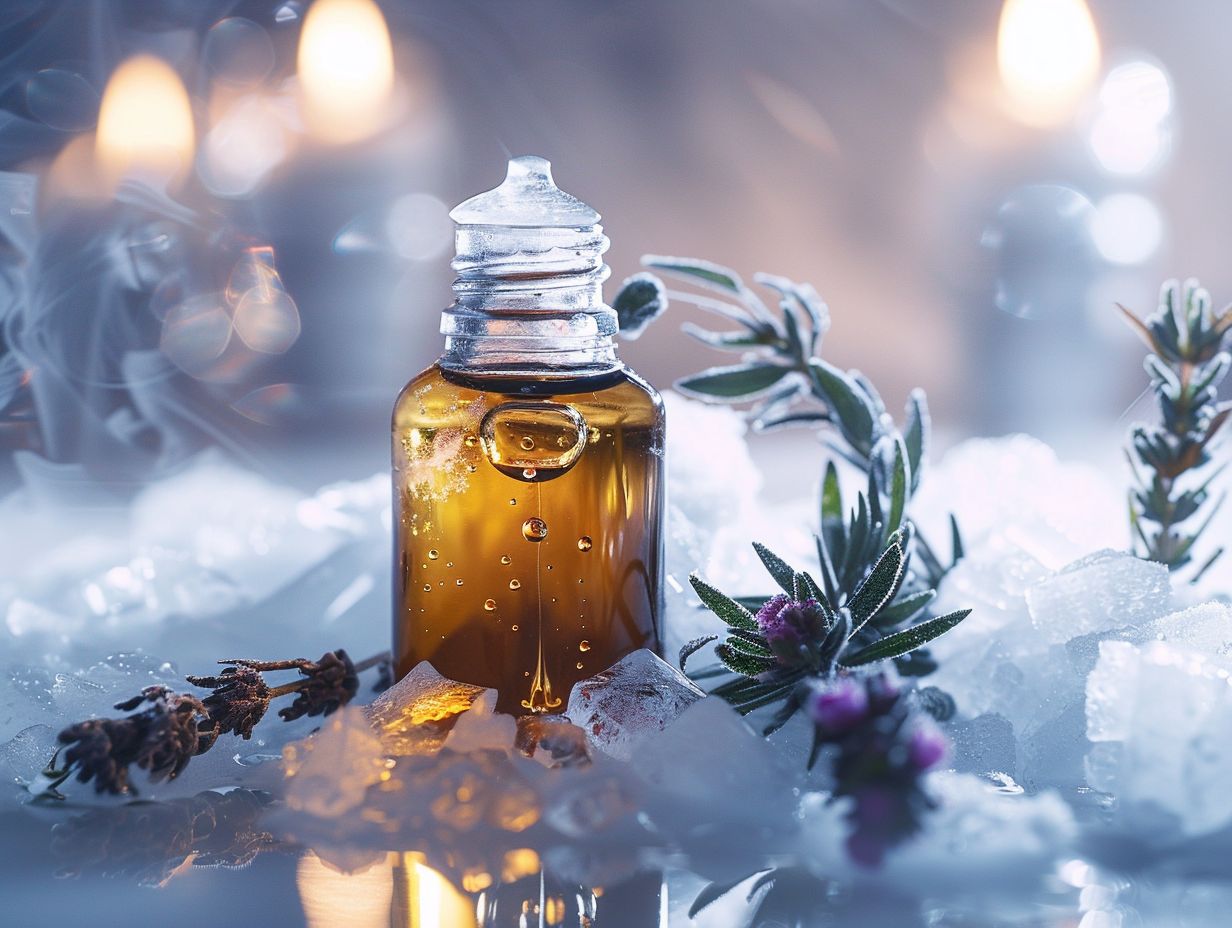
When essential oils are frozen, their molecular structure can undergo alterations, impacting their fragrance profile significantly. This can lead to an unexpected scent upon thawing, affecting the overall aromatic experience.
The effectiveness of frozen essential oils may be compromised, as freezing can degrade some of the beneficial compounds present in the oil.
For individuals with sensitive skin, using frozen essential oils could potentially trigger skin reactions, as freezing may introduce new allergens or irritants that were not present in the original oil.
Can Frozen Essential Oils Lose Their Aroma or Effectiveness?
Frozen essential oils can experience a loss of aroma and effectiveness due to changes in their chemical composition and properties while solidified.
When essential oils are frozen, the low temperatures can alter the delicate balance of volatile compounds that create their unique scents and therapeutic benefits. The freezing process can cause molecular structures to shift, affecting the overall fragrance and potential health properties of the oils.
Factors such as prolonged freezing, inconsistent temperatures, and exposure to light or oxygen during storage can exacerbate these effects, leading to a decline in quality. To minimize disruption, it is crucial to store essential oils in dark, airtight containers, avoiding drastic temperature fluctuations.
Can Frozen Essential Oils Cause Skin Irritation?
Frozen essential oils may lead to skin irritation when applied due to potential alterations in their chemical structure from freezing and incorrect storage conditions.
When essential oils are frozen, the formation of ice crystals can disrupt the delicate balance of their components, such as terpenes and esters, that contribute to their therapeutic properties. Exposing these oils to fluctuating temperatures, especially if they repeatedly freeze and thaw, can further degrade their quality. This can result in a higher risk of skin reactions upon application, ranging from mild redness and itching to more severe allergic responses.
Are There Any Benefits of Freezing Essential Oils?
Freezing essential oils can potentially extend their shelf life by slowing down oxidation processes. Freezing may affect the therapeutic properties of the oils.
When essential oils are subjected to freezing temperatures, their molecular structure may change, altering their composition and potentially reducing their effectiveness in aromatherapy or other uses. This alteration occurs because freezing can cause the oil molecules to crystallize, which in turn might impact their aroma profile and overall potency.
Despite this potential drawback, freezing essential oils can be highly beneficial for those who wish to stock up on oils for long-term use, as it helps in preserving the oils and preventing them from spoiling too quickly. By storing them in a frozen state, you can maintain their freshness and quality over an extended period, ensuring that you always have a supply of oils on hand whenever you need them.
Can Freezing Essential Oils Extend Their Shelf Life?
Freezing essential oils can help extend their shelf life by slowing down the rate of oxidation, which is beneficial in preserving the oils’ quality over an extended period.
When essential oils are subjected to oxygen exposure, they are prone to oxidation, leading to a gradual decline in their efficacy and aroma. By freezing these oils, the cold temperature hinders the oxidation process, maintaining the oils’ potency for a longer duration. This preservation method is particularly useful for delicate oils that are sensitive to environmental factors. To fully leverage the benefits of freezing, it is essential to store the oils in airtight containers to minimize contact with air, ensuring optimal preservation of their therapeutic properties.
Does Freezing Essential Oils Affect Their Therapeutic Properties?
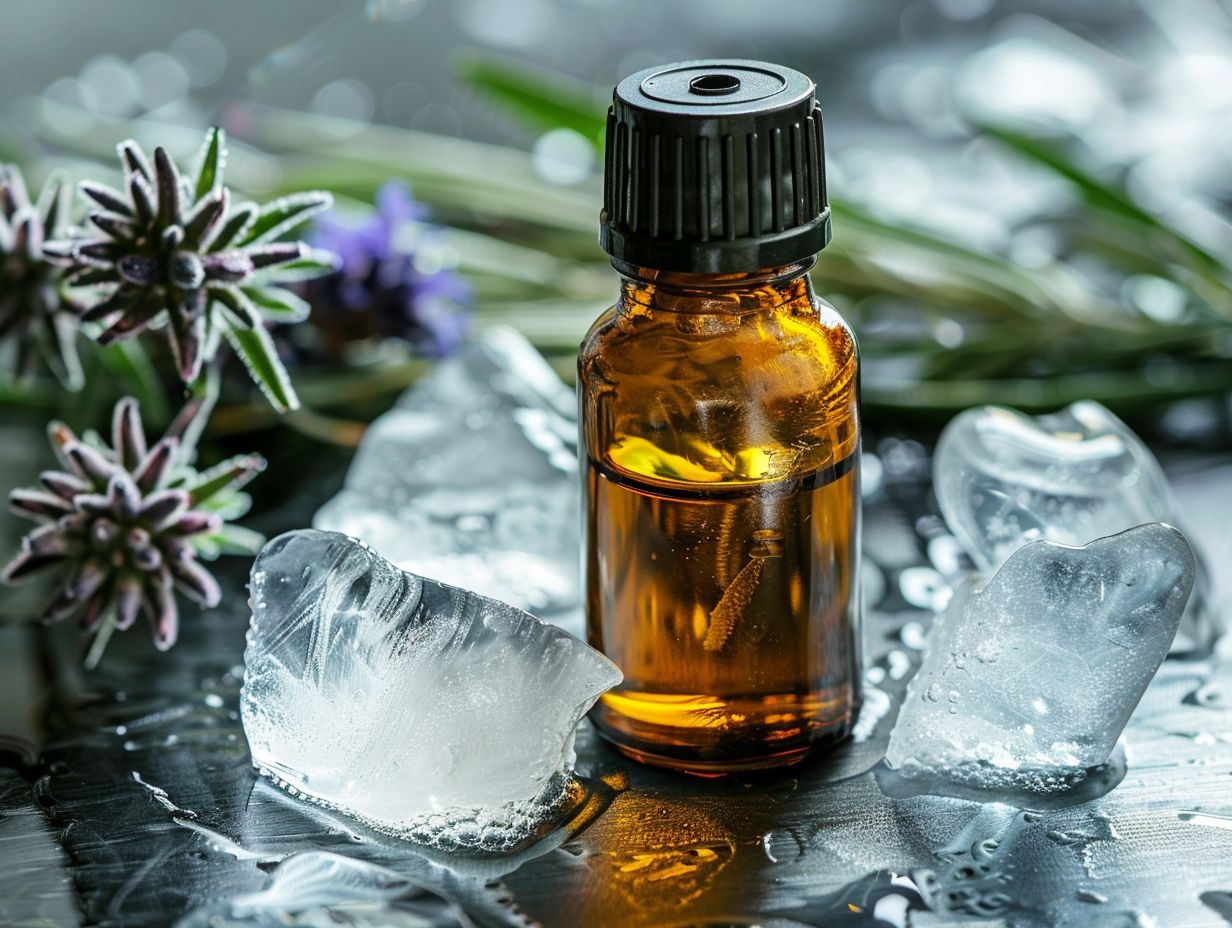
Essential oils contain volatile compounds that contribute to their therapeutic benefits, and freezing can disrupt the delicate balance of these compounds.
When exposed to freezing temperatures, the molecular structure of essential oils may undergo changes, leading to potential degradation or alteration of their active constituents.
Proper storage is crucial in maintaining the integrity of essential oils; storing them in dark, airtight containers, away from heat and light, can help preserve their potency and therapeutic properties.
Frequently Asked Questions
Can Essential Oils Freeze?
Yes, it is possible for essential oils to freeze under certain conditions.
What factors can cause essential oils to freeze?
The temperature, chemical composition, and purity of the essential oil can all contribute to its ability to freeze.
Will freezing affect the quality of essential oils?
Yes, freezing can potentially alter the chemical makeup of essential oils and impact their therapeutic properties.
How can I prevent my essential oils from freezing?
Storing them in a cool, dark place and avoiding extreme temperature changes can help prevent essential oils from freezing.
What should I do if my essential oils have frozen?
Thaw them slowly by placing the bottle in a bowl of warm water and gently swirling it until the oil returns to its liquid state.
Can freezing essential oils extend their shelf life?
While freezing may slow down the oxidation process, it is not a recommended method for extending the shelf life of essential oils. Proper storage and usage are key to maintaining their longevity.

